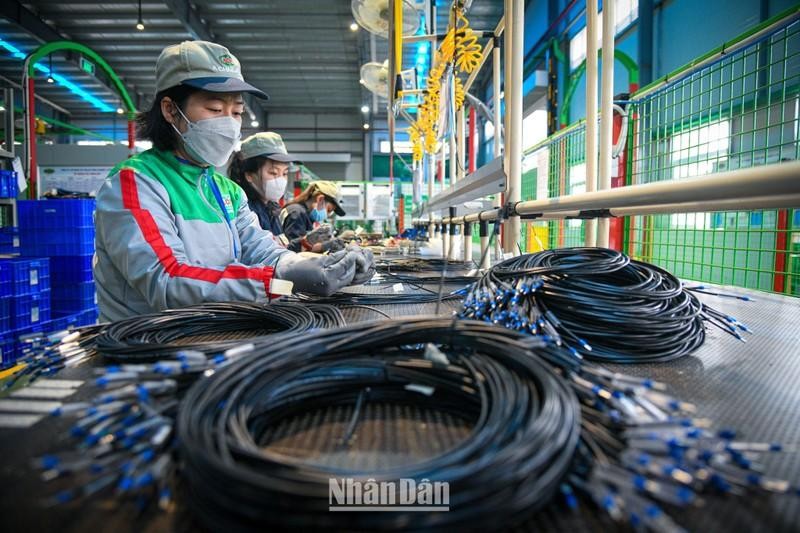ADB raises Vietnam's economic growth forecast to 7.5%
ABO/NDO- The Asian Development Bank (ADB) on December 14 raised the economic growth forecast for Vietnam in 2022 to 7.5% from 6.5%, as announced in September.
According to the Asian Development Outlook (ADO) 2022 Update released on December 14, ADB said that Vietnam’s economy is performing well despite the global economic uncertainties.
Thus, ADB lifted the economic growth projection for Vietnam from 6.5% to 7.5%, while inflation was revised down to 3.5%.
However, the ADB report also recognised that the risks to the economic outlook are increasing and there are signs that global demand for Vietnamese exports is falling.
 |
| The ADB raises the economic growth forecast for Vietnam in 2022 to 7.5% from 6.5% (Illustrative image: THANH DAT/NDO) |
Therefore, the bank revised Vietnam’s economic growth forecast to 6.3% in 2023, due to the weakening of major trade partners.
The ADB also lowered the economic growth forecast for developing Asia and the Pacific amid an increasingly negative global outlook. The region’s economic growth is predicted to expand by 4.2% in 2022 and 4.6% in 2023, compared with the projected growth rate of 4.3% in 2022 and 4.9% in 2023, as announced in September.
The growth forecast for Southeast Asia this year was raised from 5.1% to 5.5%, amid a strong recovery in consumption and tourism in Malaysia, the Philippines, Thailand and Vietnam. However, the forecast for next year decreased from 5% to 4.7% due to weak global demand.
According to ADB, the tightening of monetary policy by central banks globally, the protracted conflict between Russia and Ukraine, and repeated blockades in China are slowing the recovery process of developing Asia after the COVID-19 pandemic.
Asia and the Pacific will continue to recover, but deteriorating global conditions mean that the region’s momentum is losing some steam as we head into the new year, said ADB chief economist Albert Park.
Therefore, the expert recommended that governments work more closely together to overcome the lingering challenges of the COVID-19 pandemic and combat the impact of high food and energy prices, especially on the poor and vulnerable people, while ensuring an inclusive and comprehensive economic recovery.
(Source: NDO)
 về đầu trang
về đầu trang







